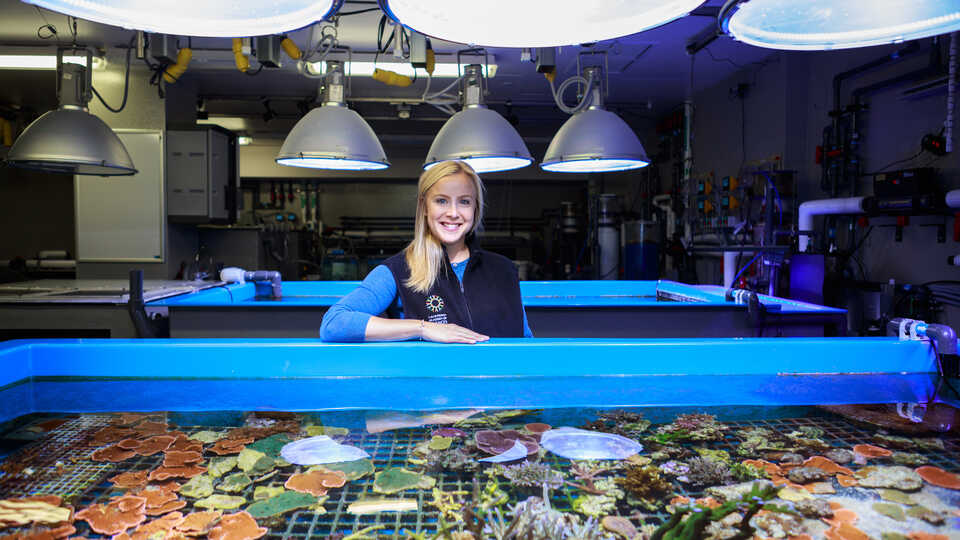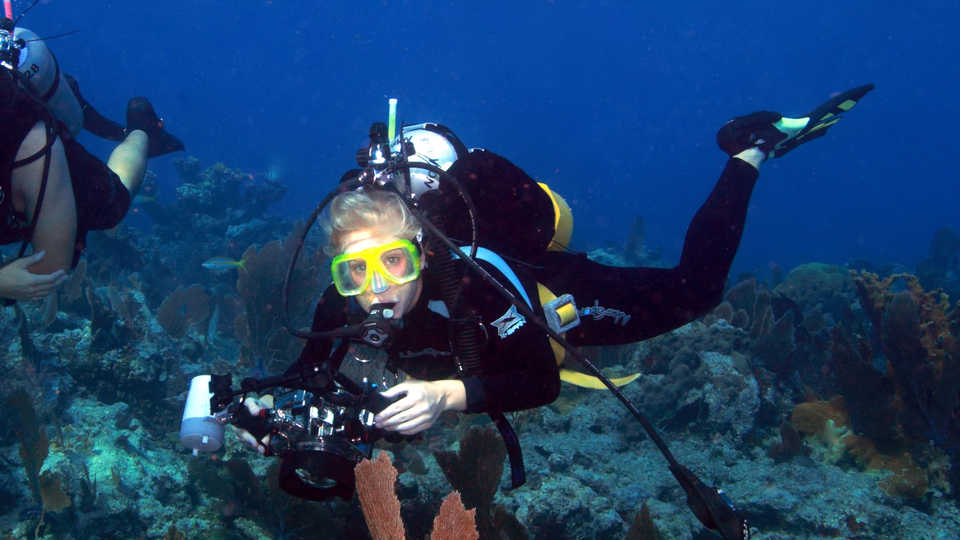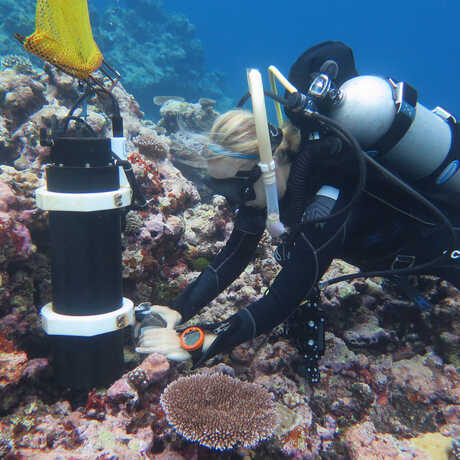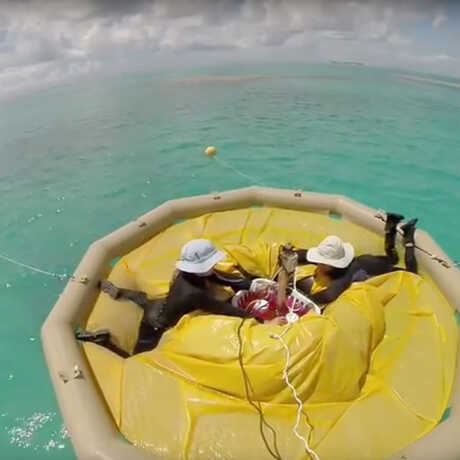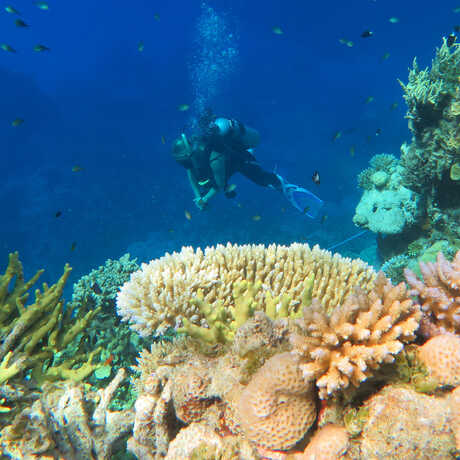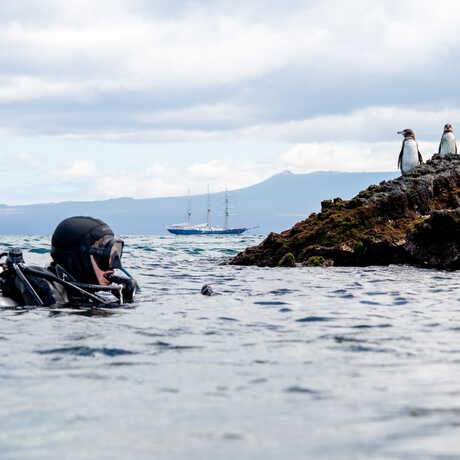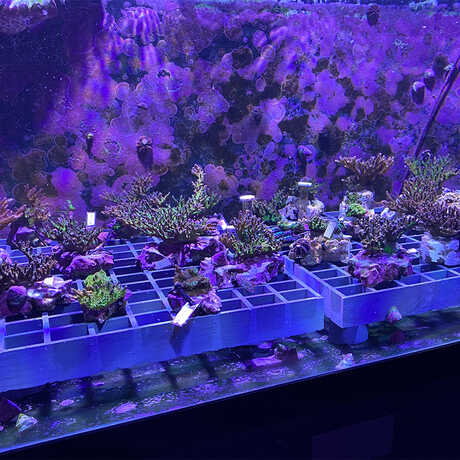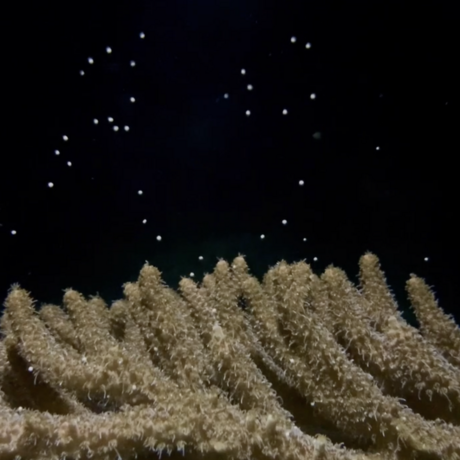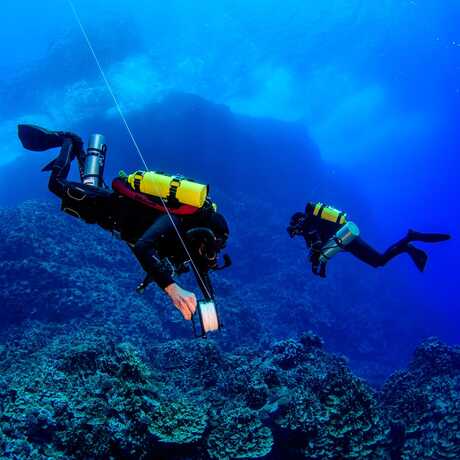Although Dr. Rebecca Albright grew up in the “landlocked-except-for-Lake-Erie” state of Ohio, her mind was always on the sea. “I fell in love with the ocean by watching the Discovery Channel and going to the Columbus Zoo and Aquarium when I was little,” says Albright. “My parents were amazing at facilitating my education and exposing me to broader ecosystems that I didn’t have immediate access to.”
By her first year at Duke University, she had already set her sights on studying abroad in Australia so she could dive in the Great Barrier Reef. For her scuba certification, Albright had to complete her training dives somewhere a little less picturesque: a limestone quarry in Ohio. “It was horrible!” she laughs. “The navigation instructions were basically, ‘Go until you see a sunken refrigerator and then take a right until you see a school bus.’ It was a means to an end.” While most beginners might feel discouraged by such murky and cold surroundings, Albright couldn’t get enough. “My instructor called me a ‘just add water’ diver—my regulator kept popping out of my mouth from smiling too much the entire time.”
Over the course of more than 50 dives Albright completed in Australia, she fell even more deeply in love with coral reefs. After graduating, she spent two years in the Dominican Republic working on conservation outreach with Reef Check, an international organization dedicated to protecting reefs, before pursuing an advanced degree. She thought she’d continue working on marine protected areas, but her arrival at the University of Miami coincided with a buzzworthy new topic in the marine biology community: the effects of ocean acidification on coral reefs.
